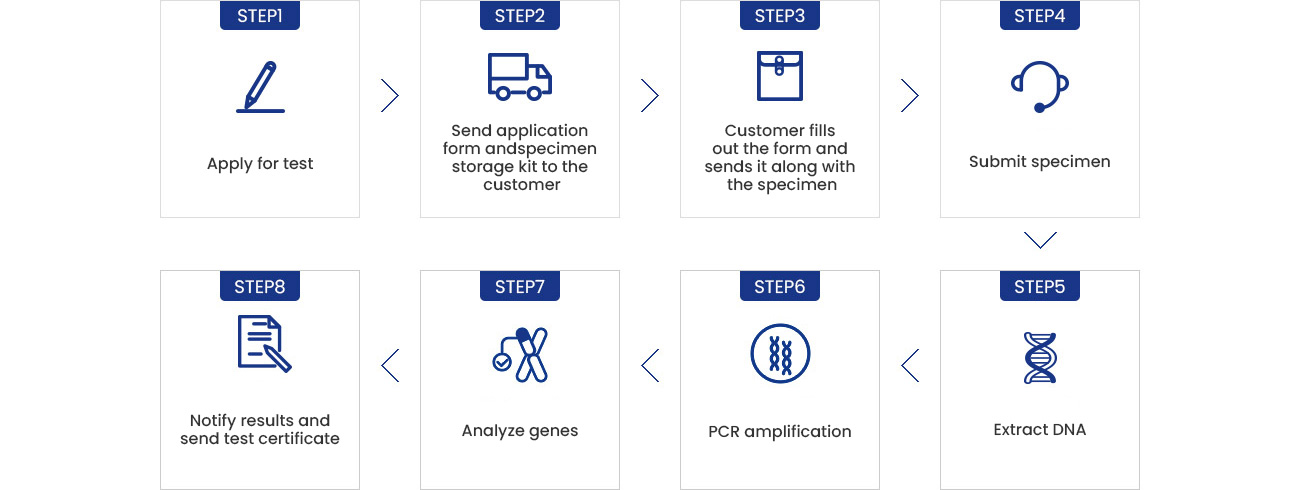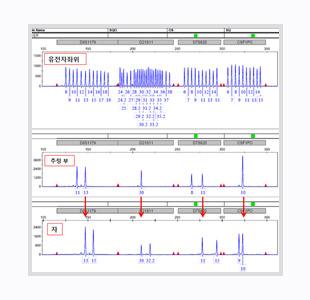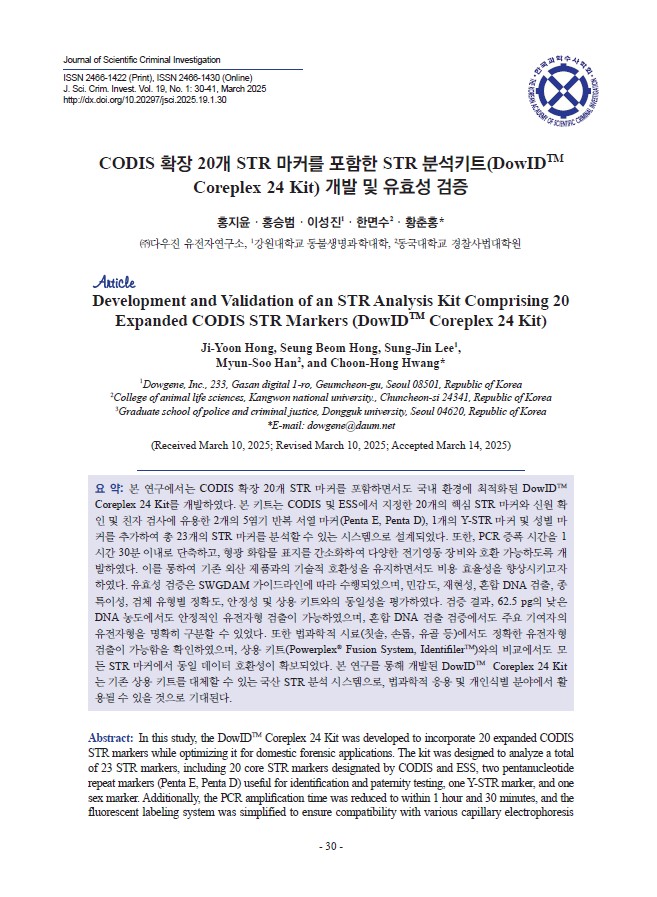Paternity Test
A paternity test identifies genes inherited from father and mother through genetic tests of parents and children and proves paternity through statistical analysis.

Paternity Test
A paternity test identifies genes inherited from father and mother through genetic tests of parents and children and proves paternity through statistical analysis.

The cells that make up the human body inherit 23 chromosomes from the father and the mother and have a total of 46 chromosomes. A paternity test utilizes these genetic characteristics to identify the genes that parents and children share with each other and to determine a biological child by indicating the possibility of paternity as a probability value.
At DowGene DNA Testing Company, we analyze at least 20 A-STR gene markers in Korea and provide the highest test accuracy with a 99.9% paternity (maternity) probability.
DowGene DNA Testing Company is a leading DNA testing company in Korea, certified as a KOLAS international accredited testing institution (ISO 17025; since 2009), and class A testing institution by the Ministry of Health and Welfare (since 2007).


Blood, hair, oral epithelium, saliva, bloodstain, toothbrush, fingernail, chewing gum, cigarette butt, etc.




DowGene DNA Testing Company analyzes more than 20 STR genetic markers, including sex chromosomes,
and provides the highest test accuracy in Korea.
In the paternity (maternity) test, if the probability of the biological father (mother) is greater than 99.9% after checking the genes shared by the father, mother, and child through genetic analysis, it is recognized as a paternal (maternal) relationship.However, if discrepancies are shown in one gene, the possibility of a mutant paternity is examined, and if discrepancies are shown in three or more genes, a paternity relationship is not established.


Proof of blood relationship between father, mother and child (three people) / father and child (two people) / mother and child (two people)

